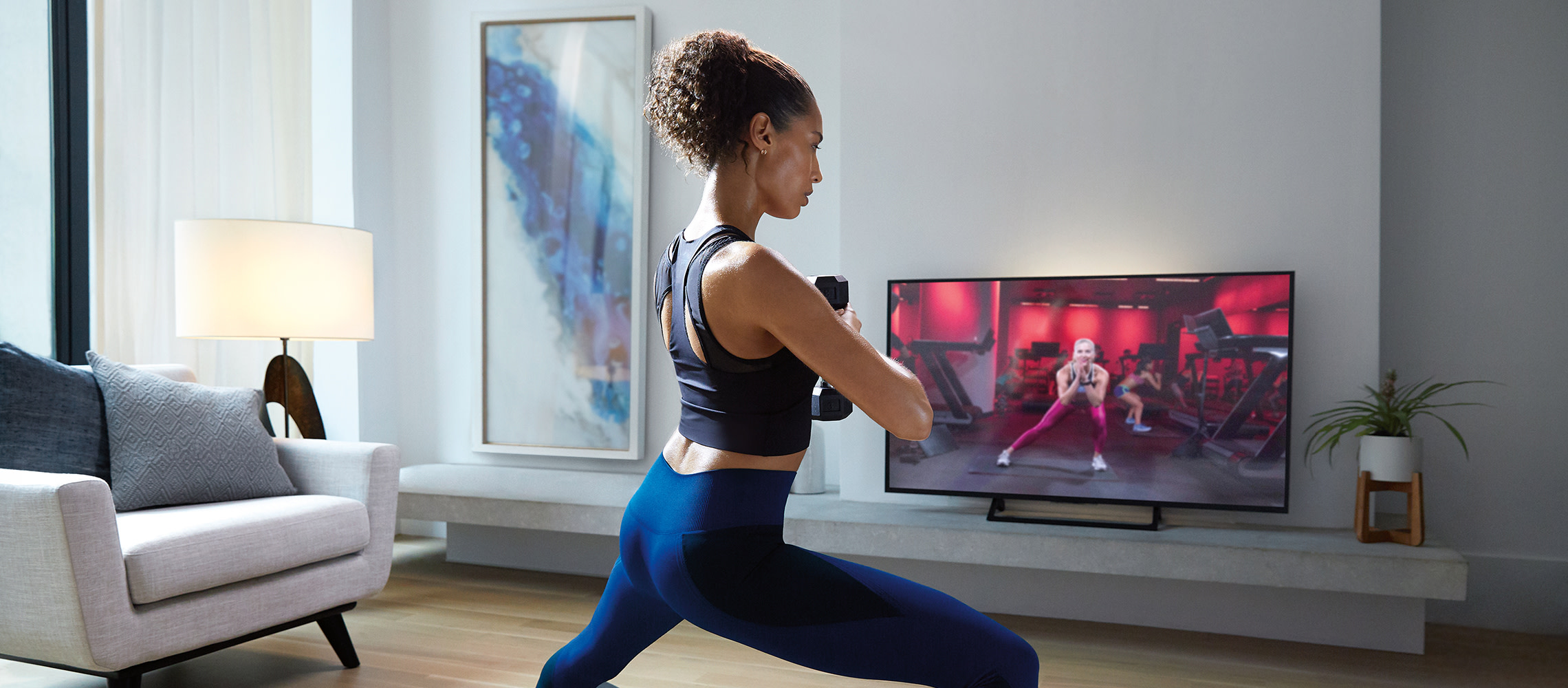How to Train If You Ski or Snowboard
How to Train If You Skate
How to Train If You’re Active in the Spring and Summer
If you live in a cold climate, it can be hard to keep up your training routine all year round—snowy roads and freezing temperatures make exercise far less fun right at the moment that our favorite winter sports are ramping up. But can moving your workouts indoors really help your winter sports performance? Since they train all year long on the best indoor exercise equipment in the world (we might be a little biased on that), we asked three of our Peloton instructors how their training works during winter and why it’s important for leveling up winter sports performance.
How to Train If You Ski or Snowboard
If you regularly hit the slopes, you know that skiing and snowboarding truly are full body workouts that require strength and agility. “For skiing, you want to have strong legs, core, and cardiovascular system,” says Peloton instructor Matt Wilpers. He recommends a training program of Power Zone cycling classes, running classes with a pre-run warmup, and legs and core strength classes.

Peloton App
Access thousands of classes with no equipment needed.
When it comes to any type of activity in the winter, “my main concern is that it's colder and thus takes longer to warm your body up for a workout,” he explains. “Make sure you give yourself ample time to warm up for every workout so that you don't injure yourself by pulling a muscle,” Matt says.
Also smart: Check out Peloton classes specifically geared towards skiers in modalities like strength, stretching, and mobility. These classes help you prepare for and recover from a long day on the slopes. Stretching and foam-rolling are also key for avoiding injury and are available on the Peloton App as well.
Instructor Olivia Amato adds that hydration can be a key concern because we don’t get as thirsty when it’s cold, so it’s easy to get dehydrated. Set a reminder and carry a reusable water bottle to make sure you’re getting enough water!
How to Train If You Skate
“All winter sports require strong stability in our knees and require strong glutes to support that,” explains instructor Rebecca Kennedy. “When you're pushing off the ice side to side, you need to be able to have muscular endurance in a squat and hinge position, which we focus on in all of our glutes and legs strength classes/bootcamps.” She also recommends taking core strength or Bootcamp classes to work on rotation, anti-rotation, and trunk stability.
Rebecca and Matt both suggest incorporating some HIIT workouts into your routine, too. “If your main event is more explosive like hockey, my HIIT Rides and Runs will help you build your endurance,” says Matt. But he also notes that “when winter hits, you should be doing a lot of your fitness work on the ice, and that includes high-intensity work...so that both your skills and fitness are sharp for hockey.”
Rebecca adds that HIIT workouts are helpful in the winter to keep our serotonin and dopamine levels up when the sun starts to go down earlier. “That’s my favorite way to fight off fatigue: a rush of endorphins,” she says.
Related Articles
How to Train If You’re Active in the Spring and Summer
“The rule of training for most sports is to start general and work to specific over the course of the training year. So months out, start improving your general fitness that’s not necessarily sport specific,” suggests Matt. If your main sport is during the spring and summer, like triathlon, winter should be a time to recharge, keep the intensity of your workouts low, and focus on building strength and your general fitness.
“Bodyweight strength classes and bodyweight boot camps as work stabilization and balance are both really important being an athlete and playing sports,” says Olivia. “10 min Core classes are always time efficient and effective. Being an athlete, you need to have a strong core for optimal performance.”
And one of your main goals, of course, is to avoid injury. “We want to keep our muscles from getting injured while training and that typically happens because we don't warm up and cool down properly,” says Rebecca. Even if your training is lower intensity as you build towards races in the spring and summer, take the time to stretch to keep yourself healthy all year round.
This content is for informational and educational purposes only and does not constitute individualized advice. It is not intended to replace professional medical evaluation, diagnosis, or treatment. Seek the advice of your physician for questions you may have regarding your health or a medical condition. If you are having a medical emergency, call your physician or 911 immediately.
Level up your inbox.
Subscribe for a weekly dose of fitness, plus the latest promos, launches, and events.
By providing your email address, you agree to receive marketing communications from Peloton.
For more about how we use your information, see our Privacy Policy.













